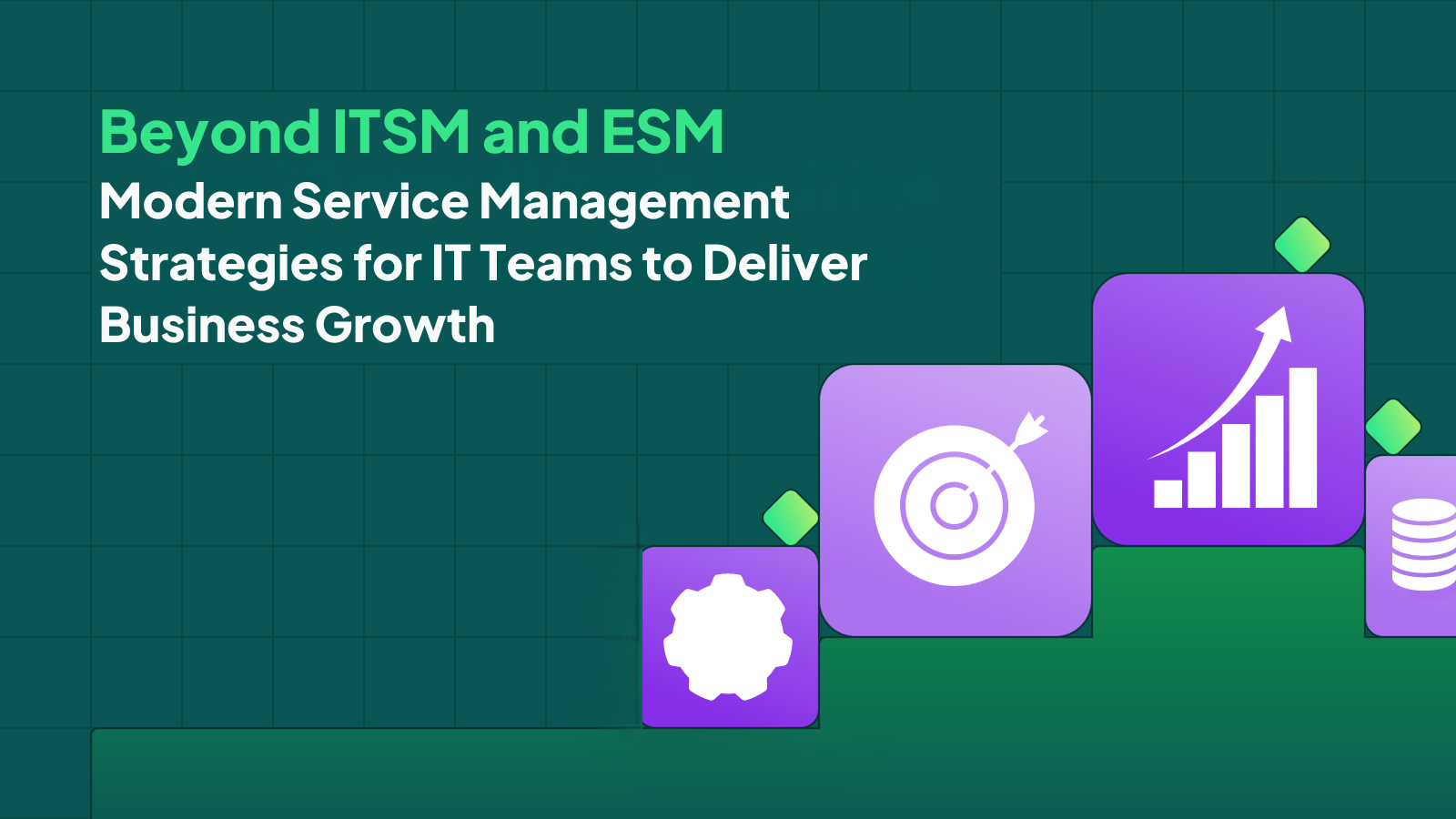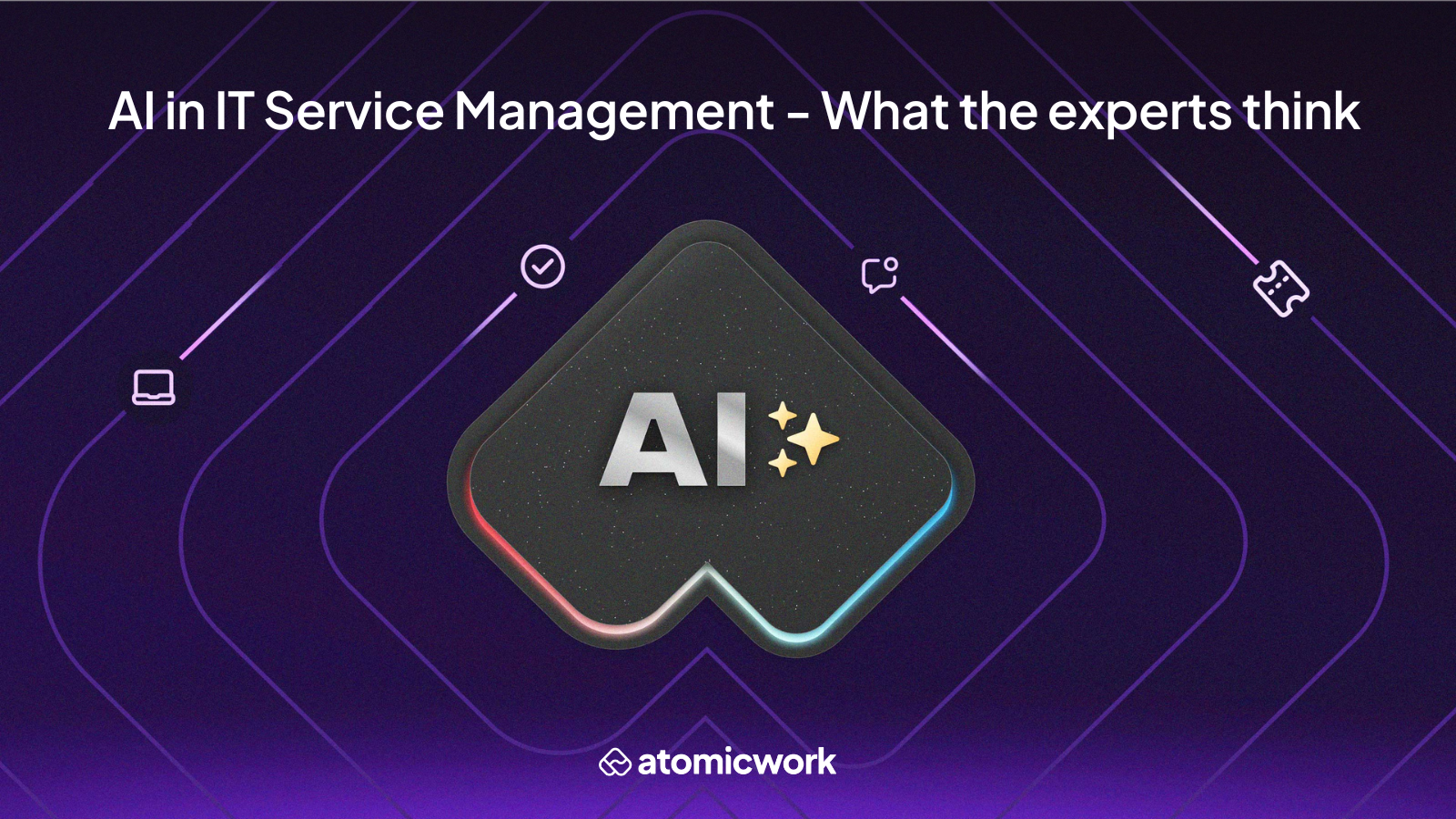In This Article:
The modern ITSM manifesto: Traditional ITSM vs modern service management

We do not make changes for the sake of making them, but we never fail to make a change when once it is demonstrated that the new way is better than the old way.
~ Henry Ford
We’re fortunate to witness one of the major inflection points in the evolution of humanity. There’s no doubt that the way the world works today will seem outdated within a few quarters based on the pace at which AI is proliferating.
ITSM has broadly been the same for decades – a ticket here, an email there, this portal, that platform, and a knowledge base that’s basically collecting dust. It is just plain archaic, not to mention inefficient in a lot of ways.
Until very recently, this was the accepted norm, but GenAI has the potential to change it all. Of course, there are concerns around security and accuracy that need to be addressed. But it’s about time enterprises started to look internally to modernize their interactions with employees, not just for a better employee experience but also for enterprise productivity.
There’s been a lot of big talk about the ‘Consumerization of IT’ for many years now. The intent has been noble but IT support solutions have historically fallen short. Portals and email are still the best alternatives to employees “tapping on the shoulder” or just calling their go-to person in IT or even other support functions for that matter.
It’s time to walk the talk.
Why now?
According to a recent Gartner survey, “currently, 77% of CIOs and technology leaders worldwide are focused on the opportunities of everyday AI”.
“It is important to note that everyday AI will go from dazzling to ordinary with outrageous speed,” said Mary Mesaglio, Managing VP at Gartner. “Everyone will have access to the same tools, and it will not provide a sustainable competitive advantage. Everyday AI is the new table stakes.”
Table stakes.
I can quote a few other studies and reports, but suffice it to say that the early adoption of AI will soon become a competitive advantage for businesses. And GenAI has already caught the attention of CXOs and CIOs, in particular.
So, how will GenAI help ITSM?
Let’s jump right in. Here are a few areas in ITSM that I think will change forever with GenAI:
Crack the self-service adoption puzzle
This is perhaps the holy grail that has the potential to unlock IT efficiency and scale. Support portals, and even email, break the employee away from their natural habitat, so to speak. They expect a behavior change from someone who could just walk up to their friend in IT.
Utilizing AI's deep learning capabilities, NLP, and generative capabilities, modern ITSM can help address issues by accessing a vast database of knowledge in a matter of seconds. Your solution needs to be conversational. And it needs to be on Slack or Microsoft Teams or whichever platform they use for internal communication. We will move from portal based self-service to interactive and intelligent self-service that works right out of Slack or Microsoft Teams.
Higher user productivity
A solution that knows the employees' context and can detect their intent, and even sentiment, can offer more intuitive responses tailored to the individual user and their work context.
This precision reduces the time employees spend searching for solutions, enabling them to focus on their core tasks and boosting the overall productivity across the enterprise. The GenAI wave will unleash a new wave of productivity improvements across the business.
Reduced ticket volume
By offering immediate, human-like, and context-aware responses, AI can immensely aid in decreasing the need for manual ticket submissions. For most things, we shouldn’t need tickets.
This not only resolves current issues but can also preemptively mitigate potential future challenges. AI can also be used to identify related tickets for problem management and root cause analysis. This will help improve the efficacy while accelerating the response time.
Allows people to solve complex issues
A system that can interpret and resolve issues in real time will significantly reduce the IT team’s workload. By automating a significant portion of the mundane IT support with AI, agents can spend their time on more pressing business problems.
AI can take over the mundane work that most agents hate and do a better job of it consistently. This shift not only streamlines operations but also leads to significant cost savings, allowing IT support teams to spend more time on strategic initiatives.
Enhanced employee experience
This, I feel, will be the biggest shift that GenAI will bring to IT. Offering real-time solutions articulated in clear, human-like language ensures that users feel understood and supported. This employee-centric approach fosters trust and increases platform adoption rates.
An overlooked factor in all this is the IT team’s experience. Humans tend to get tired and frustrated and can burn out. They can also be biased and might not always look up the latest versions of a document if they think they know the answer. These are all big limitations even if you have the budget to expand your support team.
Once AI enters IT Support and ITSM, there will be no looking back. GenAI’s impact will soon feel like second nature – both for the IT team and end users.

What does modern ITSM look like?
At Atomicwork, we’ve been working on solving organizational problems through conversations with IT leaders around the globe. To crystallize our understanding of how GenAI will radically improve ITSM, we’ve boiled it down to these five tenets.
GenAI is the near future of IT support, and by extension, ITSM. To put it in the words of Henry Ford, this isn’t change that will happen “for the sake”, it will be an altogether “new way”.





